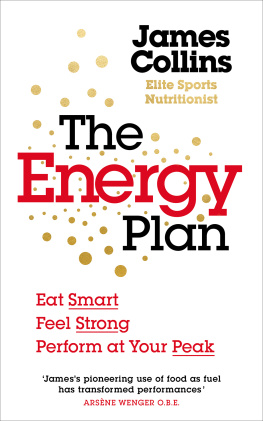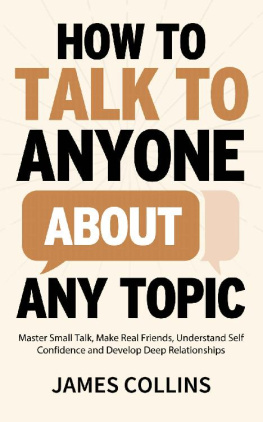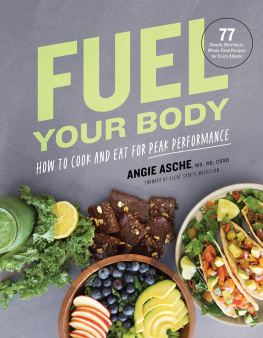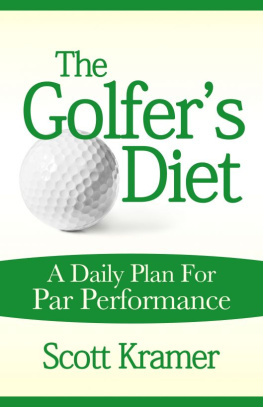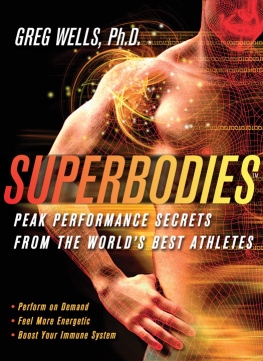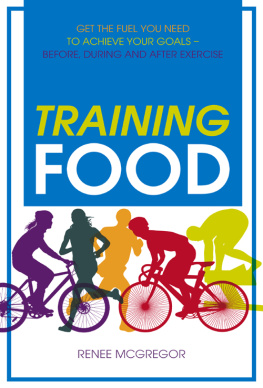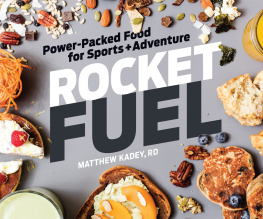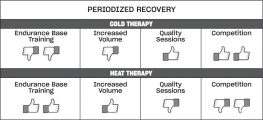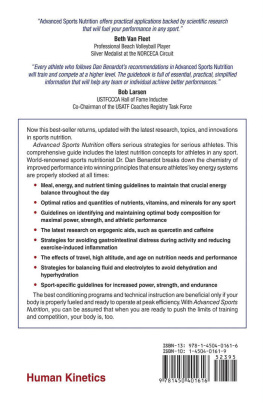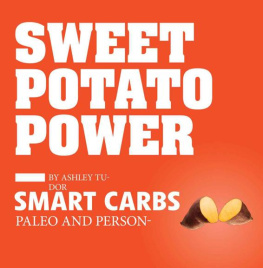About the Author
James Collins is an elite sports nutritionist to the highest performing people on this planet. He has worked with Olympic medallists, Arsenal FC (as the clubs first ever performance nutritionist), France Football (2018 World Cup winners) and is currently working with UEFA, leading a team of scientists to create guidelines for nutrition in world football. He was previously elected President of the Royal Society of Medicines Food and Health Forum and he has his own private practice in Harley Street (The Centre for Health and Human Performance) where he sees clients from all walks of life, helping them achieve their physical and mental best.
He writes a monthly column in The Telegraph and regularly contributes to the BBCs Good Food website. In 2018, he worked with a group of celebrities on the BBCs annual Sport Relief challenge and collaborated with the BBC to support London Marathon runners. He is soon to launch his own podcast, in which he will interview top talent from the world of sports, entertainment and business on how they apply nutrition to their busy lives.
For my family, friends and everyone who believes in the power of nutrition
Introduction: Achieving Your Personal Best
WHEN I FIRST started working as a nutritionist in elite sport over a decade ago, the most common thing I would hear from athletes was: James, Im here because Coach says I need to lose weight.
Fortunately things have moved on just a little since then.
Nutrition has become an integral part of every professional sports organisation, an area of substantial investment for the leading teams. We work within the sports medicine and science teams to produce nutrition plans that give the athletes the best chance of success when it matters most. We help them fuel their bodies in harmony with their training and competition schedules, boost their energy levels, recover effectively from regularly putting their bodies on the line and maintain a robust immune system.
And outside of sport, weight loss (or, as we should say, reducing body fat) might be the reason many of us first start looking at our nutrition, but theres much more to it than that now. As a nation we are more engaged with the nutrition advice and information that fills the pages of newspapers, lifestyle websites and social-media feeds than ever before. But the pressure to constantly look good means that there is often a trade-off with energy levels, mood and productivity each day.
Ive seen first-hand examples in weight-category sports such as horse racing, boxing and judo, where the performers focus is on hitting the number on the scales in order to compete, but in doing so they have no energy left to do themselves justice. Its the same principle for anyone who has been on a diet and found themselves hungry and fatigued, with mood and motivation levels plummeting:
Its no good looking great if you dont have the energy to deliver a performance.
The Energy Plan is an approach to peak performance that I have developed over more than ten years of working in sport as a nutritionist, with some of the best athletes and football players in the world, and in my private practice on Harley Street, where my clients come from all walks of life musicians, dancers, artists, actors, entrepreneurs and professionals of any age. The same principles apply to performers in any discipline.
Performance can seem like a hard and scary word, but ultimately helping you use nutrition to perform at your personal best in all aspects of your life is what this book is about.
My journey began when I worked with the British Athletics team prior to the Beijing Olympic Games in 2008, and continued as part of an approach to nutrition that helped power Team GB to success at the London 2012 Olympic Games.
My use of food to improve performance led Arsne Wenger to recruit me for Arsenal Football Club in 2010 as the clubs first nutritionist. I spent seven seasons working closely with world-class players such as Alexis Snchez, Mesut zil, Alex Oxlade-Chamberlain and Hctor Bellern, tailoring their nutritional needs to meet the demands of packed fixture lists, late-night games, travel to some of the further reaches of Europe for Champions League away games and to give them the best chance of recovery and to minimise injury and illness.
I have also worked with the England football team, and, beyond these shores, I was a consultant to the France Football Federation for their 2018 World Cup-winning campaign, and UEFA, leading a team of scientists to create guidelines for nutrition in world football.
My methods are practical and straightforward to apply, and my results deal in the only real currency all sportsmen and women are interested in: improving performance on the field of play. This may mean just making a few functional changes to meals and timings, rather than turning your eating habits upside down and trying to create an unsustainable plan.
Outside of sport, I have worked with music and dance organisations in London to help them meet the gruelling demands of rehearsals and performances night after night in the West End or on the road.
I was elected president of the Royal Society of Medicines Food & Health Forum, and I write regular columns for The Telegraph newspaper and the BBC. I was part of the 2018 Sport Relief project in which I helped entertainers who were far from being athletes find the energy and confidence that was missing from their lives, and discover that its never too late to improve your health and quality of life.
The Energy Plan is as applicable to you or me as it is to sports stars. At its heart is the simple premise that food is fuel. Our body and mind run on this resource, and it is only through fuelling in a targeted and deliberate manner that we can look and feel the way we want, and enjoy the benefits of a bountiful reservoir of energy.
There is a lot of noise around nutrition, a lot of conflicting advice and polar-opposite dietary plans that simply leave many of us in a state of confusion. Many of the plans and programmes were sold have little in the way of evidence-based research to support them. So my approach the approach we use throughout sport is to apply the science to make the biggest possible impact on your life. Im going to let you in on the secrets of how the best performers manage their energy to deliver on the biggest stages.
The Energy Plan is about more than just being lean (though it can certainly help you achieve this). It isnt an unsustainable fad diet that you will give up on in a matter of weeks. It isnt a rigid, unchanging menu that will see you eat the same sort of meals every day.
Its a feasible guide to using nutrition for the rest of your life, using your fuel to meet your bodys daily demands, because those demands change every day, week, month and year of your life. If youre pushing your body to its limits at the gym one day and then spending the next two sitting at your desk, your body will demand a different approach from your nutrition. Eating the same thing each day as part of a straightjacket diet plan is simply not going to cut it.
With The Energy Plan I will show you, among many other things, how to:
Apply the scientific secrets the worlds top athletes use to fuel their bodies for success.
Address your energy levels so you can enjoy sustained peaks and reduced troughs and be a top performer when it matters most.
Use the full range of nutrients including carbs at the right times to give you energy tailored to your needs.
Reduce your body fat and maintain your muscle mass without compromising on your energy levels.
Use nutrition and exercise to keep you strong and less likely to get ill.

